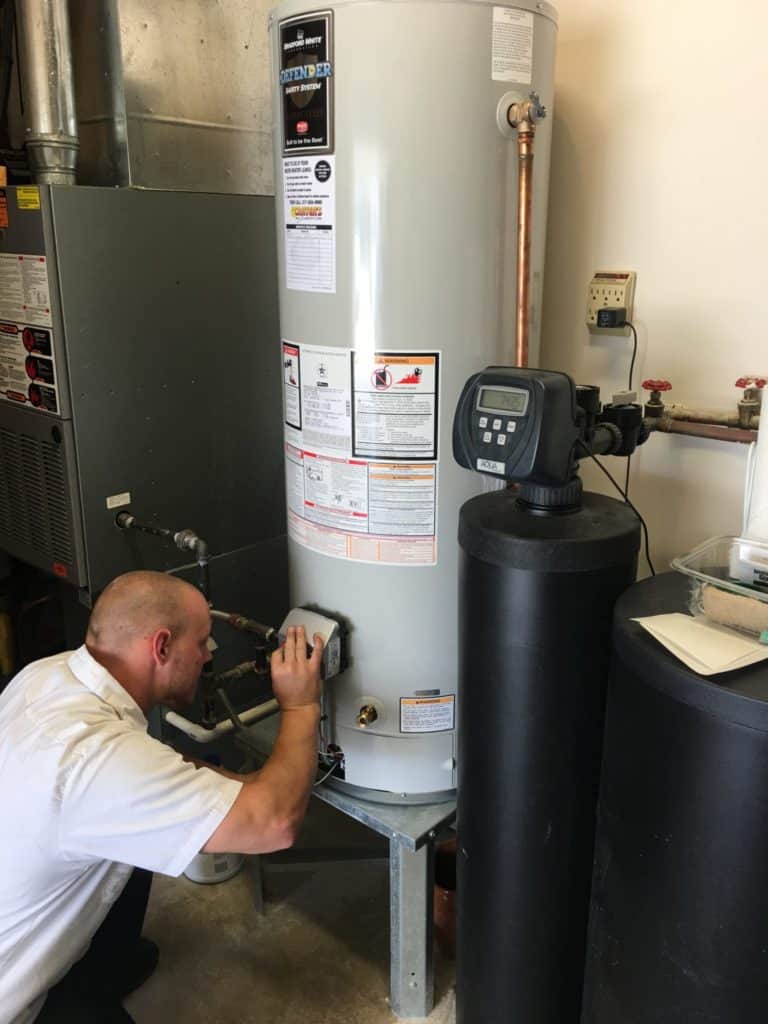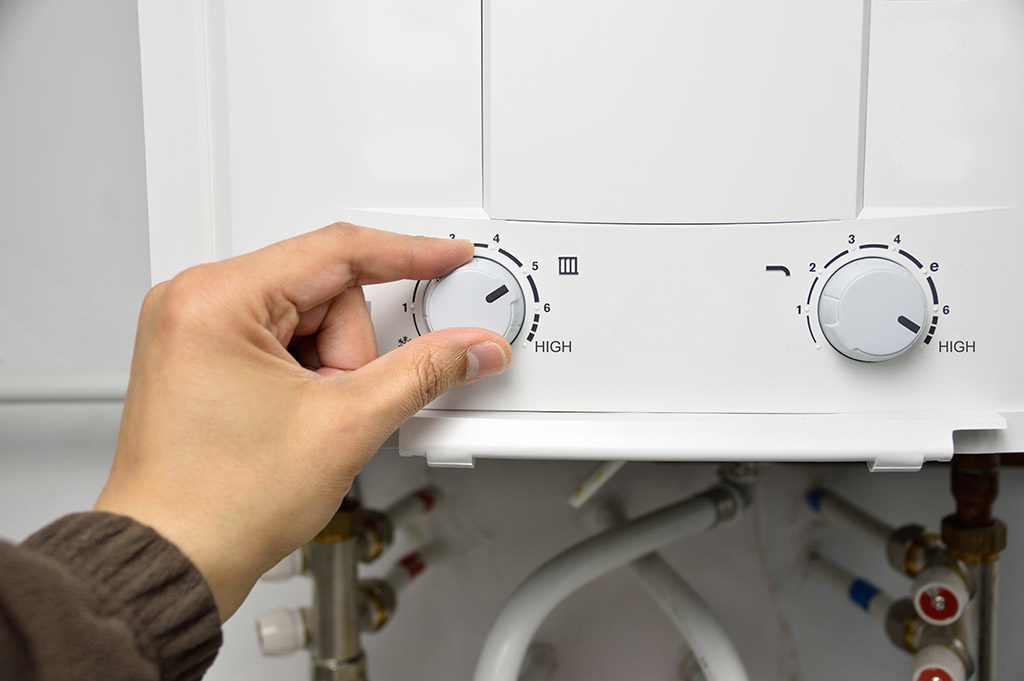Handling the Usual Hot Water Heater Emergency Challenges
Handling the Usual Hot Water Heater Emergency Challenges
Blog Article
Each person will have his or her own piece of advice in relation to Common Hot Water Heater Problems.

A water heater is one of one of the most vital basic home appliances that can be located in a house. With hot water heater, you do not require to undergo the stress of home heating water by hand each time there is a requirement to wash, wash, or the meals. Nonetheless, there is constantly a possibility that your water heater would certainly break down as with most mechanical devices.
It is important to keep in mind any kind of little malfunction and tackle it quickly before points get out of hand. Most times, your hot water heater begins to malfunction when there is an accumulation of debris as a result of continuous usage. As a preventative measure, routine flushing of your hot water heater is suggested to prevent sediment build-up and also protect against practical failure.
Typical water heater emergency situations as well as exactly how to deal with them
Too little warm water
It might be that the water heater can't support the hot water need for your home. You can update your water heating unit to one with a bigger ability.
Rising and fall water temperature level.
Your water heater might start generating water of different temperature levels generally ice cold or scalding hot. In this scenario, the first thing you do is to make sure that the temperature is readied to the desired level. If after doing this, the water temperature keeps transforming throughout showers or various other activities, you might have a malfunctioning thermostat. There might be a demand to replace either the thermostat or the heating unit of your water heater.
Leaking water heater storage tank.
A leaking tank could be a sign of rust. It could create damages to the flooring, wall and also electric gadgets around it. You could also be at risk of having your house flooded. In this scenario, you should switch off your water heater, allow it to cool off, and meticulously look for the resource of the issue. Sometimes, all you need to do is to tighten up a few screws or pipeline links in cases of minor leaks. Yet if this doesn't function as well as the leakage persists, you might require to employ the solutions of a specialist for an appropriate substitute.
Blemished or smelly water
When this happens, you require to know if the problem is from the water or the tank resource. You are particular that it is your water heating unit that is faulty if there is no funny scent when you run cold water. The stinky water can be caused by rust or the build-up of microorganisms or debris in the hot water heater tank. You can attempt flushing out your container or changing the anode if the problem persists once you discover this. The function of the anode is to clean out bacteria from your tank. Because the anode pole substitute calls for a thorough expertise of your water heating system, you will certainly require the help of a professional.
Final thought
Some homeowners disregard little warning as well as minor faults in their water heater unit. This just brings about additional damages and also a feasible full failure of your device. You must take care of your hot water heater faults as quickly as they come near prevent more costs and also unnecessary emergency troubles.
With water heaters, you don't require to go with the tension of home heating water manually every time there is a need to take a bath, do the laundry, or the dishes. It may be that the water heater can not support the warm water need for your apartment or condo. Your water heater can begin producing water of different temperatures typically ice cool or scalding hot. If there is no funny odor when you run chilly water, after that you are certain that it is your water heating unit that is damaged. The stinky water can be caused by rust or the buildup of bacteria or debris in the water heating unit storage tank.
Water Heater Burst: Why This Happens And What To Do Next
Water Heater Explosion Warning Signs
Since storage water heaters are made of metal and store large volumes of heated water, they carry an increased risk of leaking or even exploding as they begin to rust at the fittings and seams over time. If the thermostat controlling the water temperature within the tank is faulty, or if mineral buildup inside the water heater prevents the thermostat from sensing the water’s temperature correctly, the water could become overheated. This will expand its volume within the tank, causing it to press at the tank’s fittings and seams. If these fittings and seams are rusted or corroded, the pressure could result in a leak or even an explosion.
Here are some risk factors and warning signs of an increased risk of water heater leak or explosion:
Your water heater is more than 10 years old. Your water heater makes clanking, banging or rumbling noises as it heats up, indicating that sediment has built up and hardened inside the tank. There is visible rust on the outside of the water heater, especially located at the pipe fittings or the seams that run down the tank. There is rusty water coming from your water heater, indicating that there may be rust building up inside. Your water heater is leaking, which could indicate either a crack somewhere in the tank or a malfunctioning temperature-and-pressure (T&P) relief valve. What To Do When Water Heater Leaks
If you find water dripping or seeping out of your water heater, or pooling around it, it means your water heater is leaking. If you find a leak, it may be best to call a plumbing professional to diagnose the problem and determine how best to handle it. If you choose to tackle it on your own, there are a few things you can do.
TURN OFF THE POWER
Next, shut off the power to the hot water tank at your home’s electrical breaker box. If you don’t shut off the power, the heating elements within the tank could continue to stay hot, which could pose a fire risk.
If you have a gas-powered water heater, you’ll also need to shut off the gas line leading into the tank.
FIND THE LEAK
Now it’s time to determine where the leak is coming from. Likely locations are the T&P valve, the drain valve or one of the pipes or fittings that feed into the top of the tank. If you see any rust or corrosion on the outside of your water heater’s tank, pipes or fittings, these could also be the source of the leak.
REPAIR THE LEAK
Once you determine the source of your water heater leak, you’ll have a better idea of what steps you need to take to fix the problem. It may be a simple fix—such as using a wrench to tighten fittings or replacing the T&P valve—but it may be something more complicated. You may even need to drain the tank, remove the water heater and install a new one.
https://www.abchomeandcommercial.com/blog/water-heater-burst/

I was made aware of that report about Common Hot Water Heater Problems from a friend on a different web page. For those who enjoyed our blog entry please make sure you remember to pass it around. Thanks so much for going through it.
Premium plumbing emergency care here. Report this page